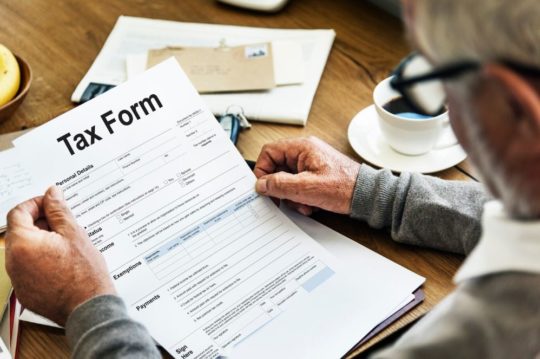Law No. 63-17 concerning Mobility, Terrestrial Transport, Security and Transit in the Dominican Republic.
By Jacqueline Dhimes (February of 2017)
Law No. 63-17 governs Mobility, Terrestial Transport, Security and Transit in the Dominican Republic as of the 21st of February of 2017. It has as its primary objectives the supervisión and control of mobility, terrestial transport and security through use of infrastructure and governmental institutions. Law No. 63-17 also establishes the institutions that are responsable for the planification and execution of any activity or issue which falls under this domain. The application of this law is wide encompassing, governing any issue regarding terrestrial transport, be it national or international, concerning proprietors, operators, passengers and luggage or cargo. This law also governs, as explained above broadly, the circulation of vehicles and animals throughout, improving mobility and accessibility for people and goods in an effective and efficient manner.
In conformity with Article 359, this law went into effect after its publication through Executive Power the 20th of February 2017 and it continues to be in effect until further notice.
By law, the National Institute of Transit and Terrestrial Transport, (INTRANT) is established and ascribed to the Minister of Public Works and Communications. INTRANT is the governing body tasked with maintaining and enforcing the law and its subsequent application. This entity acts in coordination with the city councils and necessary departments or governmental organisms as required by law.
INTRANT has a governing council regarded as (CODINTRANT) that is composed by representatives of various governmental departments such as the Secretary of the Municipal League and the Attorney General or his representative. CODINTRANT in-turn is represented by an Executive Council, whose leader, the Executive Director is decided by the President of the Dominican Republic, and interestingly enough the law does not establish the functions for this Executive Council nor does it specify terms or limitations with regard to the election of cabinet members.
The law creates the General Directorate of Transit Security and Terrestrial Transport (DIGESETT), under the governance of the National Police Department which operates under the guidelines established by the Department of the Interior, the National Police, (INTRANT) and it’s Directive Council. Its agents are charged with the supervision, fiscalization, control and vigilance of our public routes and are also charged with the application of these laws. (They would assume these responsibilities to the detriment of previous governing entities like (AMET) and (AMETRASAN) which would be dissolved in accordance with this law)
The Executive Power is tasked with designating the General Director which is a highly technical and specialized office. It’s in charge of, among other things, processing infractions, traffic accidents, vehicle inspection checkpoints, document-request checkpoints, executing any operation in the public routes and generally to fiscalize and control the mobility of people and goods throughout the public routes to promote efficiency and security.
Article 355 establishes that the following offices are hereby dissolved, General Department of Terrestrial Transport (DGTT), Technical Office of Terrestrial Transport (OTTT), Metropolitan Authority of Transport (AMET) and Metropolitan Authority of Transport of Santiago (AMETRASAN). These entities are required to transfer their electronic data and registries to (INTRANT). The law requires substantial reform concerning public entities or mixed entities (public-private) of national transport providers such as the Metropolitan Office of Bus Services (OMSA) and the Office of Transport Reorganization (OPRET). Executive Power is responsible for emitting legal decrees that would provide for positive changes in the institutional, administrative and operation aspects of these governing organisms.
(INTRANT) shall regulate and organize the public transport of passengers as a public service, in the public’s interest. Any topic or occurrence regarding security and efficient circulation of the public routes shall be governed by (INTRANT)
In addition to the regulation of public transport for passengers this law also governs the publicity placed on these vehicles, the transport of children, school related transport, tourism-transportation, motorcycle-transportation, emergency providers and funerary services among other things. The law provides guidelines as to how to properly transport children with security and well-being as a priority, these guidelines provide differentiation in terms of age, weight and size of the child and conforms to internationally accepted standards of health and safety.

Among the powers delegated to INTRANT is that of emitting operational licenses for both public and private operators of transport, this encompasses both the transport of passengers and goods, be it with motorcycles, taxis or even technological platforms such as Uber. (INTRANT) establishes that concessionaries, distributors and any seller of a motor vehicle or trailer must solicit a specific license that is emitted by the General Department of Internal Tax (DGII) for a period of 5 years, in conformance with pre-requisites established by the (DGII). The law strictly requires that these concessionaries, distributors and or any seller of motor vehicles or trailers provide a guarantee of motor and transmission that indicates the producer for the model and type of vehicle being sold, in addition they must offer between three months or 8 thousand kilometers of coverage for used vehicles. Vehicle transfers must be completed within the 90 labor day limit, in order to avoid surcharges established by the law.
(INTRANT) determines the rates for transport services in taxis, in accordance with the time, location and distance travelled during the service.
The vehicles must be inscribed in the National Registry of Motor Vehicles, which is under the jurisdiction of the General Department of Internal Tax (DGII), whom in turn determines according to guidelines the requisites to process the inscriptions. The law governs and offers instruction on how to expedite and renovate license plates, the renovation of vehicle stickers (marbete), the classification of license plates, vehicle inspections which must be completed yearly by (INTRANT) among other responsibilities.
The law is clear in establishing that (INTRANT) is the governing authority in charge of the registry of offenders, sanctions and similar information, even being in charge of promulgating any information concerning infractions to other governing agents that regulate terrestrial transport or the application of administrative sanctions.
Any penal action legally applied as a result of a transit accident are attributed to the Jury of Special Peace of Transit. The law alienates the proper procedure for the application of penal action as a result of these accidents, as well as any economic distribution.
Article 336 establishes that (INTRANT) in conjunction with the Department of Public Administration is tasked with preparing and submitting the rules and regulations that govern organic and functional structures for Executive approval. These must be submitted within 6 months of the law going into effect. This article also provides a timeline for the Directive Council of (INTRANT) to emit their guidelines and a list of rules that require modification or elaboration.









